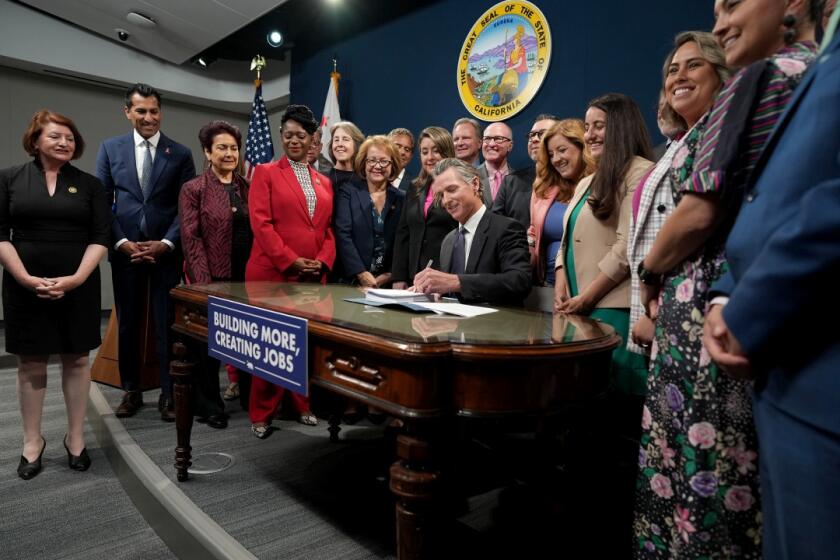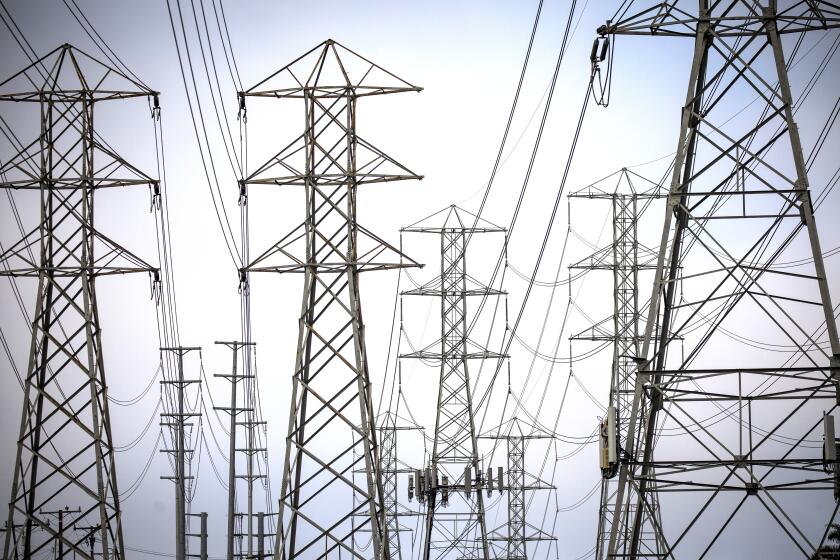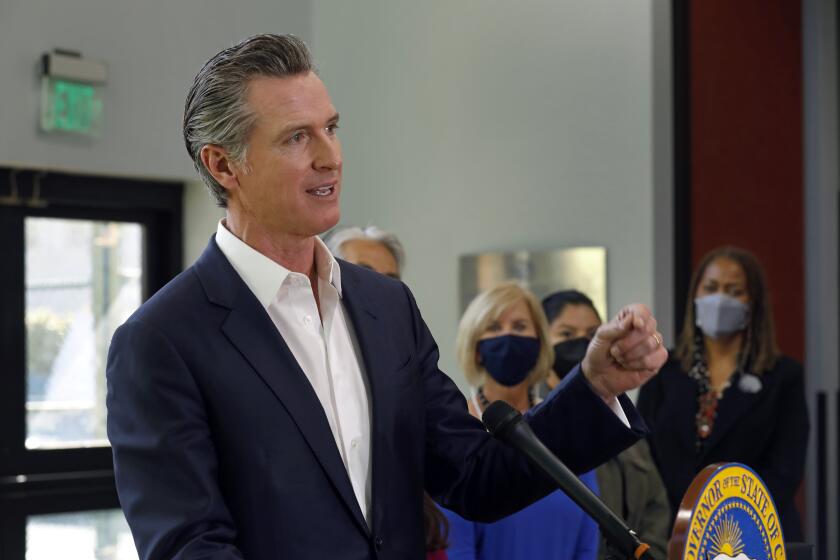Newsom calls Legislature into special session after lawmakers reject his latest salvo at Big Oil

- Share via
SACRAMENTO — Gov. Gavin Newsom called California lawmakers into a special session Saturday after Assembly Democrats pushed back on his request to approve new requirements on oil refineries in the final days of the regular legislative session that ended Saturday night.
The unusual maneuver effectively pushes the Legislature into overtime to address the complex and politically sensitive issue of energy affordability just as campaign season heats up in advance of the Nov. 5 election.
Newsom’s order called for a special session to begin Saturday, but it’s unclear when lawmakers will hold hearings to consider the bills or whether they will pass. While the Assembly formally opened the special session Saturday night, the Senate defied Newsom and refused to. Lawmakers were scheduled to leave Sacramento this weekend for four months in their home districts.
Newsom energy package sparks tug of war in final hours of California legislative session.
“It should be common sense for gas refineries to plan ahead and backfill supplies when they go down for maintenance to avoid price spikes. But these price spikes are actually profit spikes for Big Oil, and they’re using the same old scare tactics to maintain the status quo,” Newsom said in a statement.
“Calling the session now allows the Legislature to begin that work immediately so that the state can resolve this important matter to establish the necessary rules to prevent price spikes next year and beyond.”
It’s the second time in two years that Newsom has called a special session focused on the economics of the oil industry, an issue that divides Democrats as they navigate a desire to fight climate change with ambitions to lower prices at the pump. Newsom has blamed high gas prices on the industry, which he accused of gouging consumers. Oil companies point to the state’s climate change and tax policies as drivers of higher prices.
Two weeks ago, Newsom announced a proposal to require that petroleum refiners maintain a stable inventory in order to prevent fuel shortages and price spikes when refinery equipment is taken offline for maintenance.
As the oil industry lobbied heavily against the proposal, Democrats in the Assembly and Senate squabbled over how to move forward. Lawmakers said they were frustrated with Newsom’s attempt to push the plan through the Capitol at the last minute.
In a statement Friday, Assembly Speaker Robert Rivas (D-Hollister) said his caucus agreed with the governor about the need to urgently address affordability and would deliver results if a special session was called. But he refused to take up the bills for a floor vote by Saturday’s deadline.
“What I’m not going to do is push through bills that haven’t been sufficiently vetted with public hearings,” Rivas said. “Doing so could lead to unintended consequences on Californians’ pocketbooks.”
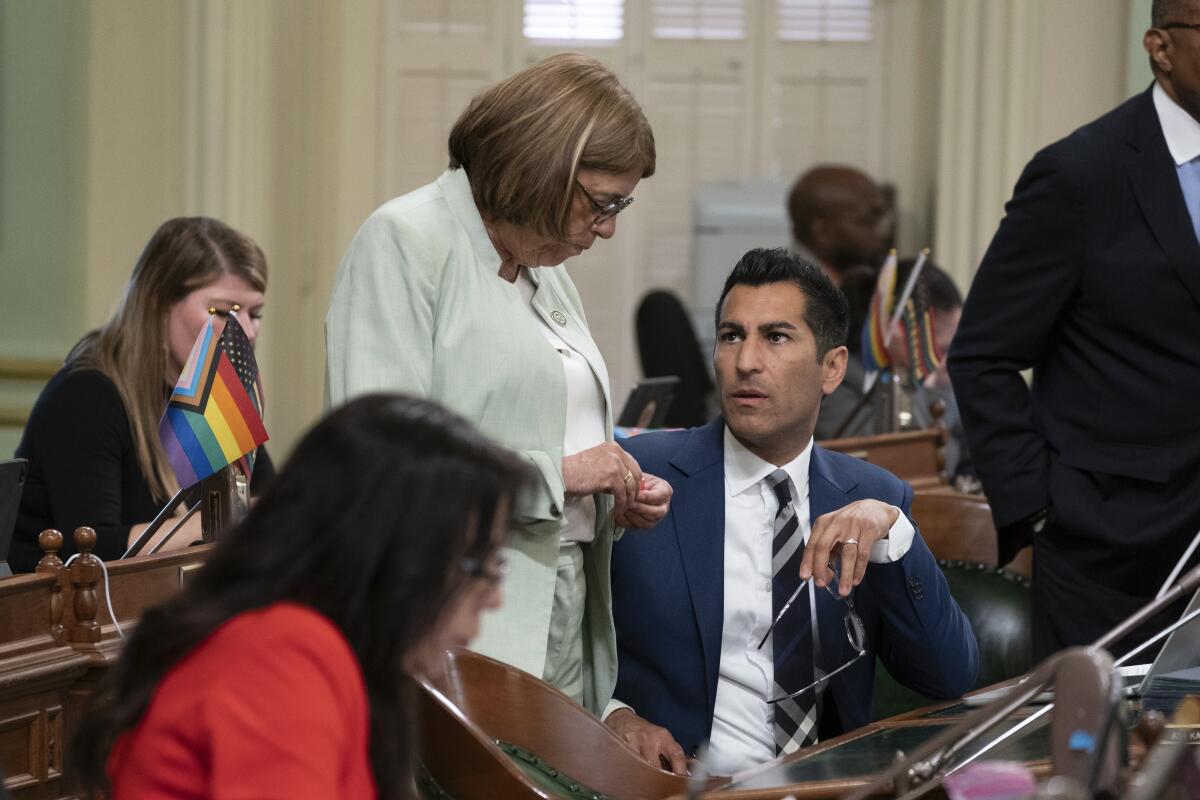
Late Saturday night, Rivas said he will begin organizing the Assembly for the special session and plans to announce more details in the next two weeks.
“We know that the number one issue facing this state is our cost of living, the high cost of living,” he said to reporters in the Capitol. “We have to stop at nothing to find solutions.”
The message was different on the other end of the Capitol, where Senate leader Mike McGuire (D-Healdsburg) told reporters that his chamber was prepared to pass Newsom’s oil proposal during the regular session but will not reconvene this fall.
“The Senate Democratic Caucus is 100% united that we’re not going to come back for a special session,” McGuire said.
“We had the votes. We were ready to pass the bills, get them across the finish line and to the governor.”
It was not immediately clear if the Senate leader has the legal authority to refuse the governor’s call for a special session or whether Newsom would try to force McGuire to acquiesce.
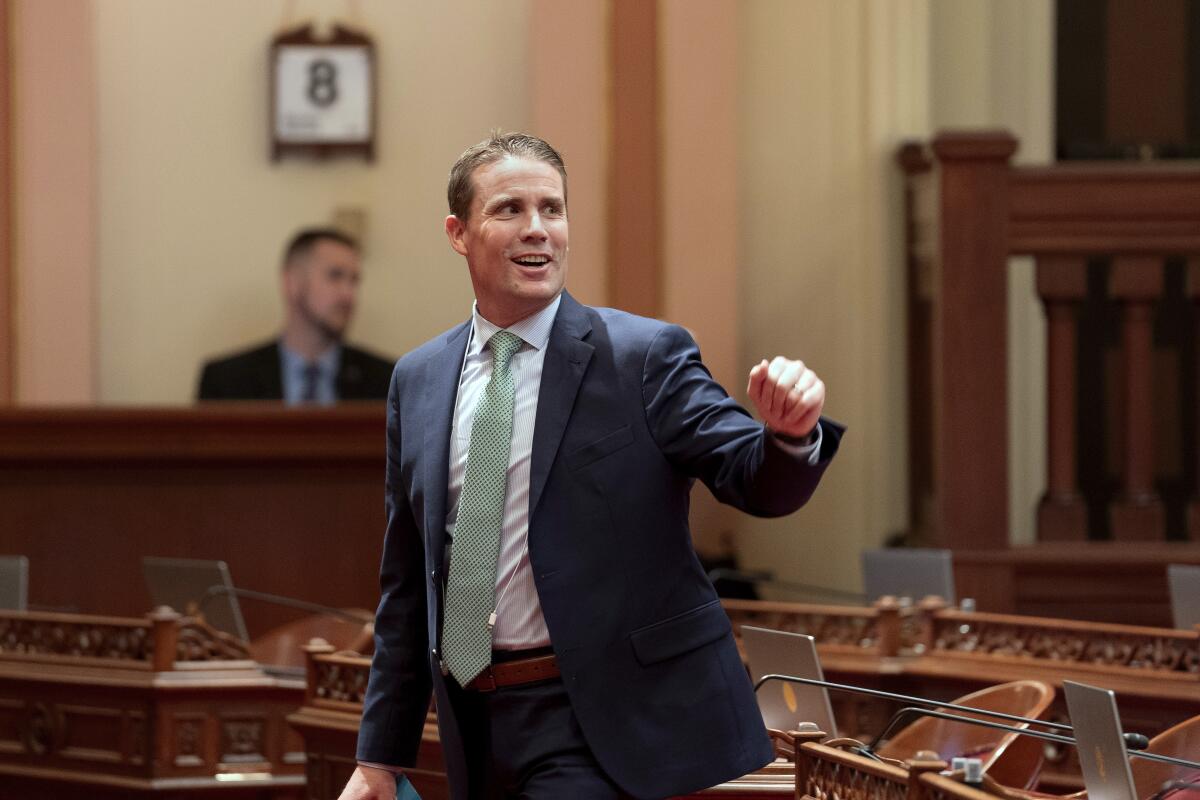
Newsom’s office began talking with the Senate and Assembly earlier this summer about legislation that would allow his administration to require that petroleum refiners maintain a stable inventory in order to prevent fuel shortages in California.
After gathering more insight about pricing from laws passed in a previous special session on oil that ended last year, state regulators had reported that charges at the pump increase when the oil companies do not maintain enough refined gasoline to backfill production shortfalls or protect against the impact of unplanned maintenance.
Western States Petroleum Assn. leaders said the governor’s refinery proposal will drive up fuel costs in California and reduce supplies in Arizona and Nevada. The argument raised a potent political concern that the state policy could become a national headache for Vice President Kamala Harris and other Democrats in a critical election year.
“It’s noteworthy that legislators are considering such radical energy policies at a time when the nation is closely examining how the ‘California model’ will impact their families and pocketbooks,” Catherine Reheis-Boyd, CEO of the Western States Petroleum Assn., said in a statement this week.
The policy trademark of California’s 40th governor is becoming increasingly apparent in his second term: publicly manufacture a sense of urgency.
The warning from the association, Chevron and other industry players spooked Assembly Democrats, who were also irked by the late introduction of the proposal.
In an effort to reach an agreement with Democratic lawmakers, the proposal was tied together with other bills in the Senate and Assembly during negotiations with leaders of both houses. But environmentalists opposed some of those proposals, leaving Democrats with a suite of bills that angered both ends of the environmental policy spectrum.
One of the Assembly bills — which would cut energy and climate programs that fund air-conditioning improvements in schools, installation of energy storage and generation technologies in vulnerable communities and solar energy systems on multifamily affordable housing to achieve a meager one-time customer credit on electricity and gas bills — drew sweeping opposition from a coalition of environmental, education, housing and energy groups. Another bill, which ratepayer advocates supported, would have required the Public Utilities Commission to develop a framework for analyzing total annual energy costs for residential households.
The bills didn’t offer enough incentive for Assembly Democrats to slam the plan through this week. They also soured on efforts by Senate leader McGuire to leverage the moment to pass Senate bills that would accelerate environmental reviews for clean energy and hydrogen projects, save ratepayers money by lowering requirements for utility wildfire mitigation plans and make it harder for companies to terminate utility service to customers.
Some Southern California consumers say they’re frustrated with their costly electricity bills. Here’s what to do about it.
The drama marked another effort by a governor on the cusp of the final two years of his second term to push last-minute bills through a Legislature guided by two new leaders. Earlier this summer lawmakers similarly balked on passing a bill that would have placed his measure targeting retail crime on the ballot.
Newsom’s decision to call for a special session marks the second time he’s sought to toughen California’s oil laws outside the typical two-year process to hear bills, which runs from January through August or mid-September each year.
The governor called a special session two years ago to penalize oil companies for excessive profits as gasoline prices spiked. But lawmakers were ultimately reluctant to adopt a penalty and Newsom refined his request to instead demand more transparency from the industry.
Instead of enacting a cap and penalty on oil refinery profits, Newsom and lawmakers gave state regulators the ability to do so in the future. Consumer advocates and the governor celebrated the resulting law as a groundbreaking tool that could keep gas prices from escalating.
California Gov. Gavin Newsom launched an offensive in his war with Big Oil. The battle didn’t go as planned.
But Republican Gov. Joe Lombardo of Nevada joined the industry and his party in May when he sent Newsom a letter warning that a cap could “further raise gas prices for both of our constituencies” because his state’s gas largely comes from refineries in California.
On Friday, Andy Walz, president of Americas products for Chevron, sent a letter to the California Energy Commission saying that Newsom’s new refinery proposal “risks the safety of refinery operations, the orderly functioning of markets and would leave industry and labor experts without a voice in key policies.”
“The physical, operational and cost burdens to sustain unnecessary inventory are also a concern,” he wrote. “Building just one new storage tank can take a decade and cost $35 million. These costs would likely be passed onto the consumer. And given the current regulatory regime, with constraints on permits and a gasoline vehicle sales ban, there is no opportunity to recover capital invested to build additional tanks, which could be the ‘last straw’ for the state’s energy market investors.”
The timing of a second special session on oil regulations could work in Newsom’s favor if lawmakers immediately get to work.
Newsom will finish signing the bills on his desk by Sept. 30, which means he could have the political upper hand if the special session begins before that period concludes. If the special session begins after bill signing, the governor could lose some of that leverage.
But when, and, if, they ultimately pass, new mandates on the oil industry or lower electricity bills could affect the election.
Legislation that saves consumers money could give lawmakers something to tout to their constituents. Laws that potentially raise gas prices could be weaponized in California races or national contests.
Times staff writer Mackenzie Mays contributed to this article.
More to Read
Sign up for Essential California
The most important California stories and recommendations in your inbox every morning.
You may occasionally receive promotional content from the Los Angeles Times.

